

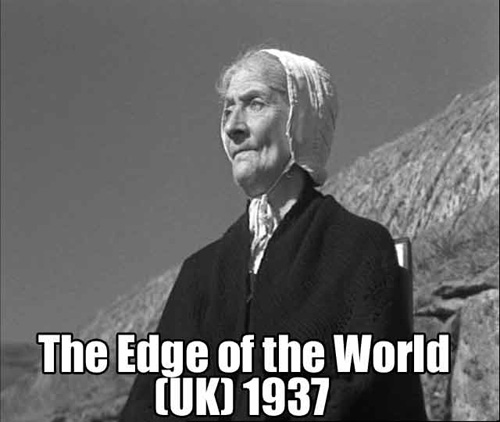 |
The Edge of the World (UK) 1937 Michael Powell’s first film and while he would go on to make classics such as “The Red Shoes” and “Black Narcissus” (in collaboration with Emeric Pressburger), it’s his earlier, smaller films that really win me over. This film is about a way of life that is dying out on the far flung islands off of Scotland’s coast and portrays how the modern world is calling its youth to the cities and how the peat is running out and won’t last as a source of fuel for another winter. The story is that four hours of film were shot and edited down to 80 minutes. Every time I see this film I have a daydream about Thelma Schoonmaker (Powell’s widow) going back to the original footage and maybe re-cutting it to produce a longer film of the story. With John Laurie, Belle Chrystall, Eric Berry, Finlay Currie and Niall MacGinnis, among others. Cinematography by Monty Berman, Skeets Kelly and Ernest Palmer. Music by Lambert Williamson. |
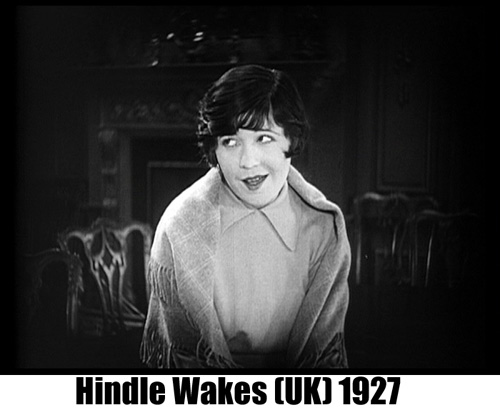 |
Hindle Wakes (UK) 1927 The blurb on the DVD is from anarchist Emma Goldman, who wrote “[t]he message of ‘Hindle Wakes’ is . . . of inestimable value, inasmuch as it dispels the fog of the silly sentimentalism and disgusting bombast that declares woman a thing apart from nature — one who neither does nor must crave the joys of life permissible to man.” Goldman actually wrote that about the play that the film is based on and the play caused near riots when it opened in London in 1910, or so the story goes. No wonder, as the story is about a young female factory worker who goes off to a local resort town when the factory grants its annual weeks’ vacation. She meets a man and they take off to a better resort leaving behind a postcard that a co-worker will mail at the end of the week to cover the illicit tryst and keep her parents in the dark. Nothing ever goes according to plan in the movies and the co-worker drowns in a boating accident and the postcard — and the heroine’s disappearance — are discovered and when the girl returns home thinking her tracks well covered, her parents trap her in her web of deceit. When the man is revealed to be a well-to-do son of a local businessman — and childhood friend — of the heroine’s father, the wheels of matrimony are primed and oiled and the demands of society seem a fait accompli. And that’s where this film gets interesting. What is even more interesting is that the heroine is played as a regular working girl and not some flapper nightclub singer or gangster’s moll. There is none of the morality kitsch that’s so predominate in Hollywood pre-Code films and that’s what gives this film its sting even after all these years. |
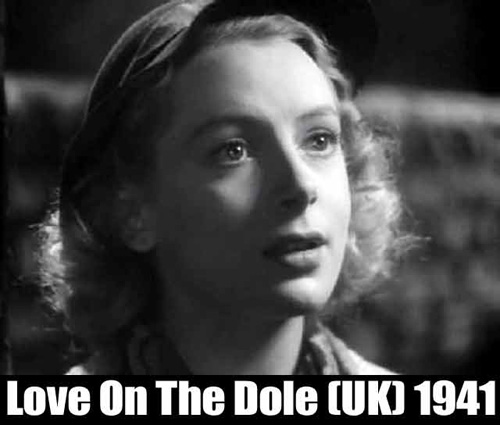 |
Love On The Dole (UK) 1941 Based on a highly regarded novel by Walter Greenwood that chronicled the urban poor in Northern England in the 1930s, the story was considered too “sordid” and “dangerous” by the British Board of Film Censors to be made into a film until the economic climate changed due to the outbreak of World War II. As a result the film has a look-how-things-are-better slant rather than, say, nostalgia for the prewar years. Even so, it’s a solid flick directed by John Baxter with Deborah Kerr in her first starring role. Also featuring Clifford Evans, George Carney, Mary Merrall, and Maire O'Neill, among others. Cinematography by James Wilson. |
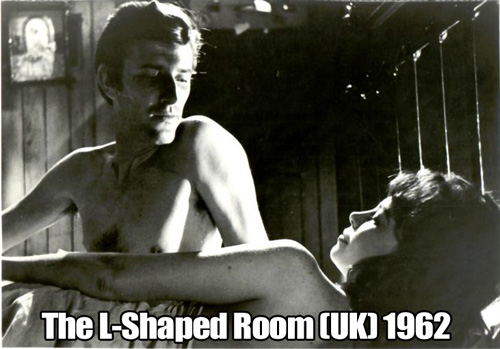 |
The L-Shaped Room (UK) 1962 One group of films that I will always see are the “kitchen sink” films that were produced from the late 1950s to the mid-1960s in the UK. After years of chasing it, I finally caught up with “The L-Shaped Room.” Directed by Bryan Forbes and adapted by Forbes from the novel by Lynne Reid Banks, the film stars Leslie Caron and Tom Bell. The story is deceptively simple. A pregnant French girl moves into a London boarding house to figure out what to do next. At the boarding house she meets a failed writer and the complications begin. It’s hard to imagine a film made at this time about pregnancy that isn’t bogged down by authority figures and long-winded speeches about morality. This film isn’t about morality – it was obviously not made in the US – it’s about people and that is the strength of these films. Throw in an unexpected resolution and you got yourself a flick worth watching. |
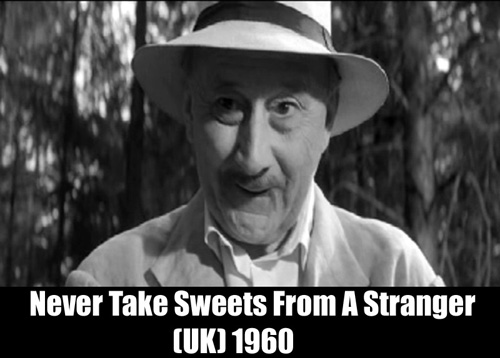 |
Never Take Sweets From A Stranger (UK) 1960 One of the first – and still disturbing – films about child molestation. Directed by Cyril Frankel and written by John Hunter, based on the play by Roger Garis, this Hammer Studios production is set in a small town in Canada where the new school principal and his wife and nine-year-old daughter have recently arrived. The patriarch of the town’s founding family takes liberties with the daughter and her friend after enticing them into his home by offering them candy. The school principal and his wife find out and press charges and it all falls apart in court due to denial, manipulation and intimidation. That, of course, is not the end of it and the depressing aspect is that not a whole lot has changed. With Patrick Allen, Gwen Watford, and Felix Aylmer, among others. |
This is a somewhat random selection of British films, and I’ve tried to avoid the better-known films. These days, that isn’t easy. So if you’re a Brit flick maven, these films will be familiar. If not, treat yourself to some rewarding viewing on a rainy day. It isn't intended as a complete list and other films are sure to follow.